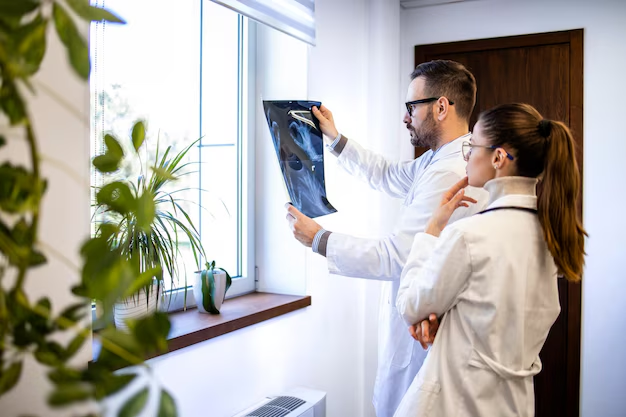Your Guide to Is Osteoporosis Hereditary
What You Get:
Free Guide
Free, helpful information about Osteoporosis FAQ and related Is Osteoporosis Hereditary topics.
Helpful Information
Get clear and easy-to-understand details about Is Osteoporosis Hereditary topics and resources.
Personalized Offers
Answer a few optional questions to receive offers or information related to Osteoporosis FAQ. The survey is optional and not required to access your free guide.
Understanding the Hereditary Nature of Osteoporosis: What You Need to Know
Osteoporosis is often dubbed the "silent disease" because it progresses without symptoms until a fracture occurs. Many are left wondering: Is osteoporosis hereditary? Understanding the genetic components of this condition can help in early detection and management.
The Genetic Connection
Osteoporosis can indeed have a hereditary component. Research shows that genetics can account for up to 80% of an individual's bone density. If you have a family history of osteoporosis, particularly among immediate relatives like your parents or siblings, you might have a higher predisposition to developing the condition. However, genetics is just one factor; lifestyle choices such as diet, physical activity, and smoking also play crucial roles in bone health.
Beyond Genetics: Other Risk Factors
Though genetics is significant, it's important to consider several other factors that contribute to osteoporosis:
- Age: Bone density decreases naturally as you age.
- Gender: Women are at a higher risk, especially post-menopause, due to lower estrogen levels.
- Nutrition: A diet low in calcium and vitamin D can weaken bones.
- Lifestyle: Sedentary behavior, excessive alcohol consumption, and smoking can adversely affect bone health.
Steps to Mitigate Risk
If osteoporosis runs in your family, or if you are at a higher risk due to other factors, there are steps you can take to protect your bone health:
- Routine Screenings: Regular bone density tests can help detect early signs of osteoporosis.
- Dietary Changes: Ensure adequate intake of calcium and vitamin D through food or supplements.
- Exercise: Weight-bearing exercises like walking, jogging, or dancing can strengthen bones.
- Lifestyle Modifications: Quitting smoking and reducing alcohol intake are crucial steps.
Government Aid and Financial Assistance for Osteoporosis
Managing osteoporosis, especially for those at higher risk, can be costly. However, there are numerous aid programs and financial assistance options available:
- Medicare and Medicaid: These programs can cover the cost of bone density tests for eligible individuals, reducing the financial burden of regular screenings.
- Supplemental Nutrition Assistance Program (SNAP): For those who need dietary changes, SNAP can help provide access to healthier food options rich in calcium and vitamin D.
- State-specific programs: Many states offer specific health programs or subsidies that support low-income families or individuals in managing chronic health conditions, including osteoporosis.
Exploring Educational Grants and Resources
Education is paramount in managing hereditary diseases such as osteoporosis. Access to educational resources can empower individuals with knowledge and practical strategies to manage their health:
- Community Health Workshops: These often offer free classes that teach the public about bone health and preventative strategies.
- Online Courses: Platforms might provide courses focused on nutrition and exercise that benefit those at risk of osteoporosis.
- Health Literacy Grants: Certain organizations grant funding to increase awareness and understanding of osteoporosis among communities.
By understanding the hereditary nature of osteoporosis, individuals can take proactive measures to manage and potentially reduce their risk. Moreover, tapping into financial and educational resources ensures that proper healthcare is accessible and affordable.
Financial Assistance & Resources for Osteoporotic Individuals
- 🏥 Medicare/Medicaid: Coverage for bone density testing
- 🍎 SNAP Benefits: Assistance for maintaining a bone-healthy diet
- 📚 Community Workshops: Local health education on bone health
- 🌐 Online Educational Resources: Courses and materials on osteoporosis management
- 💰 Health Literacy Grants: Funding for community awareness and education
Taking control of your bone health today can safeguard your tomorrow, especially if you're armed with the right knowledge and resources.
What You Get:
Free Osteoporosis FAQ Guide
Free, helpful information about Is Osteoporosis Hereditary and related resources.

Helpful Information
Get clear, easy-to-understand details about Is Osteoporosis Hereditary topics.

Optional Personalized Offers
Answer a few optional questions to see offers or information related to Osteoporosis FAQ. Participation is not required to get your free guide.


Discover More
- a Nurse Is Caring For a Client Who Has Osteoporosis.
- a Percutaneous Is Performed To Treat Osteoporosis Related Compression Fractures
- Can Alcohol Cause Osteoporosis
- Can I Do Pilates If I Have Osteoporosis
- Can I Reverse Osteoporosis
- Can Men Get Osteoporosis
- Can Osteoporosis Affect Teeth
- Can Osteoporosis Be Cured
- Can Osteoporosis Be Painful
- Can Osteoporosis Be Reversed
